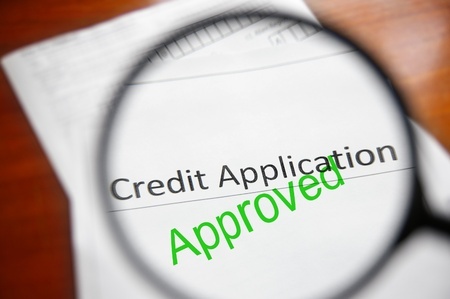 If you are looking to buy a home, you may want to consider shopping for a loan first. Having your financing squared away ahead of time can make it easier to be taken seriously by buyers and help move along the closing process. For those who are looking to get a mortgage soon, keep in mind that the Debt-to-Income ratio of the borrower plays a huge role in the approval of your mortgage application.
If you are looking to buy a home, you may want to consider shopping for a loan first. Having your financing squared away ahead of time can make it easier to be taken seriously by buyers and help move along the closing process. For those who are looking to get a mortgage soon, keep in mind that the Debt-to-Income ratio of the borrower plays a huge role in the approval of your mortgage application.
What is a Debt-to-Income Ratio?
A debt-to-income ratio is the percentage of monthly debt payments compared to the amount of gross income that a person earns each month. Your gross monthly income is typically the amount of money you earn before taxes and other deductions are taken out. If a person’s monthly gross income is $2,000 a month and they have monthly debt payments of $1000 each month, that person would have a DTI of 50 percent. The lower the DTI the better. 43 percent is in most cases the highest DTI that potential borrowers can have and still get approved for a mortgage.
What Debt Do Lenders Review?
The good news for borrowers is that lenders will disregard some debt when calculating a borrower’s DTI. For example, utilities, cable, phone and health insurance premium would not be considered as part of your DTI. What lenders will look at are any installment loan obligations such as auto loans or student loans as well as any revolving debt payments such as credit cards or a home equity line of credit. In some cases, a lender will disregard an installment loan debt if the loan is projected to be paid off in the next 10-12 months.
What Is Considered Income?
Almost any source of income that can be verified will be counted as income on a mortgage application. Wage income is considered as part of a borrower’s monthly qualifying income. Self-employed individuals can use their net profit as income when applying for a mortgage, however, many lenders will average income in the current year with income from previous years. In addition, those who receive alimony, investment income or money from a pension or social security should make sure and include those figures in their monthly income as well when applying for a loan.
How Much Debt Is Too Much Debt?
Many lenders prefer to only offer loans to those who have a debt-to-income ratio of 43 percent or lower. Talking to a lender prior to starting the mortgage application process may help a borrower determine if his or her chosen lender offers such leeway.
A borrower’s DTI ratio can be the biggest factor when a lender decides whether to approve a mortgage application. Those who wish to increase their odds of loan approval may decide to lower their DTI by either increasing their income or lowering their debt. This may make it easier for the lender and the underwriter to justify making a loan to the borrower. For more information, contact your local mortgage professional today.
 When you are considering purchasing a home, understanding the lending guidelines regarding a down payment is important.
When you are considering purchasing a home, understanding the lending guidelines regarding a down payment is important.  Do you find yourself staring out the window, longing for an early sunrise, hot days and late evenings? With spring just around the corner, it might feel like summer is a lifetime away.
Do you find yourself staring out the window, longing for an early sunrise, hot days and late evenings? With spring just around the corner, it might feel like summer is a lifetime away.